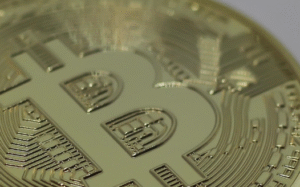$USDT #Crypto #Israel #Iran #Sanctions #Blockchain #Finance #Geopolitics #Cryptocurrency #Defense #Tether #CryptoRegulation
How Did Israel Confiscate $1.5B in Crypto From Iran and Why Does It Matter?
In a significant move that has stirred the geopolitical and financial worlds, Israel’s Ministry of Defense recently seized a staggering 187 cryptocurrency wallets. These wallets are allegedly linked to Iran’s Islamic Revolutionary Guard Corps (IRGC), signaling a deepening intersection of international finance, digital currency, and national security. This pivotal event holds a mirror up to the evolving dynamics of global finance, particularly the role of cryptocurrencies like Tether in international relations and sanctions enforcement.
The Strategic Implications of Crypto Seizures
The seizure of $1.5 billion in Tether (USDT) is not just a financial maneuver but a geopolitical statement. Cryptocurrencies have long been touted for their decentralization and anonymity, features that can also be exploited for evading economic sanctions. The recent actions by Israel, in concert with similar moves by the United States, underline a growing trend: nations are becoming more adept and willing to trace, track, and seize digital assets associated with adversarial activities.
Navigating the Technical and Legal Terrain
The technical aspects of how these cryptocurrency wallets were identified and seized remain under wraps, but the implications are clear. Countries are increasingly utilizing advanced blockchain analysis tools to monitor and intervene in unauthorized crypto flows. This action also sets a legal precedent for how digital assets, often considered stateless, can be subjected to national and international law enforcement within the framework of combating terrorism financing and economic subterfuge.
Discover more about this evolving challenge in the world of digital finance by exploring cryptocurrency trends and regulations.
The Economic Ripple Effects
The ripple effects of such seizures are multifaceted. For the cryptocurrency market, it brings to light critical questions about the security and privacy of digital assets. For international finance, it stresses the need for a balanced approach in using technology for economic sanctions and anti-terrorism without stifling innovation and global commerce. Furthermore, for countries like Iran, such actions could push them to develop more insulated and perhaps more clandestine digital currencies, potentially triggering a digital arms race.
A Call for Enhanced Regulatory Frameworks
As nations grapple with the dual-edged sword of cryptocurrency — its potential for both innovation and misuse — there arises an undeniable call for enhanced regulatory frameworks. The balance between innovation in the fintech space and the security imperatives of nations must be navigated delicately to foster growth while safeguarding against financial abuse and geopolitical instability.
For further insights into how nations like Israel are leveraging financial technology in national defense, check out the latest updates on global crypto regulations.
Conclusion: The Evolving Landscape of Crypto Geopolitics
The seizure by Israel marks a critical juncture in the narrative of cryptocurrency within global geopolitics and finance. It exemplifies the growing prowess of nations to not only adopt and adapt to blockchain technology but also to enforce sovereignty in the digital age. As the lines between technology, finance, and national security continue to blur, the international community must tread a path that fosters innovation while ensuring robust economic security and adherence to international law.











Comments are closed.